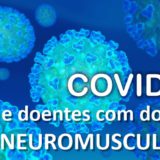Doxicilcina melhora as alterações cardíacas e musculares esqueléticas dos camundongos com distrofia muscular
Brasil – os autores utilizaram a doxiciclina, um antibiótico da família da tetraciclina em camundongos com distrofia muscular; houve melhora das alterações patológicas do músculo cardíaco e músculos esqueléticos e aumento da força muscular nos animais tratados.
O resumo em inglês pode ser lido abaixo:
(Muscle Nerve 46: 400–406, 2012) DOXYCYCLINE AMELIORATES THE DYSTROPHIC PHENOTYPE OF SKELETAL AND CARDIAC MUSCLES IN mdx MICE
JULIANO ALVES PEREIRA, ANA PAULA TIEMI TANIGUTI, CINTIA MATSUMURA, MARIA JULIA MARQUES, HUMBERTO SANTO NETO – Brasil
ABSTRACT: Introduction: We examined whether doxycycline,an antibiotic member of the tetracycline family, improves the histopathology and muscle function in mdx mice, the experimental model of DMD. Methods: Doxycycline was administered for 36 days (starting on postnatal day 0) and for 9 months (starting at 8 months of age) in drinking water. Histopathological, biochemical (creatine kinase), and functional (forelimb muscle grip strength) parameters were evaluated in limb, diaphragm, and cardiac muscle. Results: Doxycycline significantly minimized the dystrophic phenotype of skeletal and cardiac muscles and improved forelimb muscle strength. The drug protected muscle fibers against myonecrosis and reduced inflammation. Furthermore, it slowed the progression of myocardial fibrosis. Conclusions: This study provides evidence that doxycycline may be a potential therapeutic agent for DMD.



